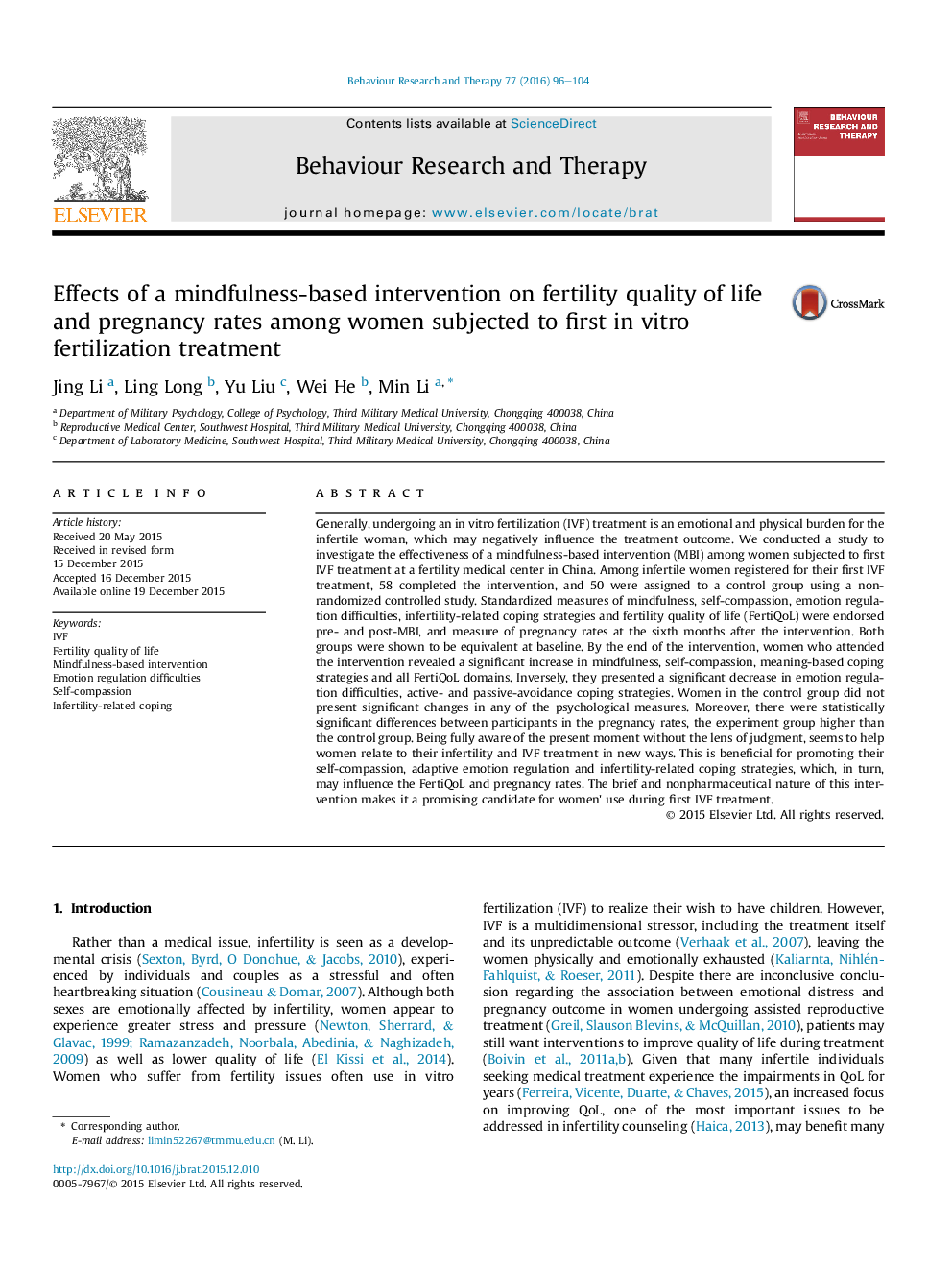| کد مقاله | کد نشریه | سال انتشار | مقاله انگلیسی | نسخه تمام متن |
|---|---|---|---|---|
| 901794 | 1472772 | 2016 | 9 صفحه PDF | دانلود رایگان |
• We developed the Mindfulness-Based Intervention for IVF women (MBII).
• Increase in mindfulness, self-compassion, meaning coping, FertiQoL for MBII women.
• Improvement in emotion regulation, active- and passive-avoidance for MBII women.
• The control group didn’t present significant changes in all psychological measures.
• Higher pregnancy rates in the study group than control group.
Generally, undergoing an in vitro fertilization (IVF) treatment is an emotional and physical burden for the infertile woman, which may negatively influence the treatment outcome. We conducted a study to investigate the effectiveness of a mindfulness-based intervention (MBI) among women subjected to first IVF treatment at a fertility medical center in China. Among infertile women registered for their first IVF treatment, 58 completed the intervention, and 50 were assigned to a control group using a non-randomized controlled study. Standardized measures of mindfulness, self-compassion, emotion regulation difficulties, infertility-related coping strategies and fertility quality of life (FertiQoL) were endorsed pre- and post-MBI, and measure of pregnancy rates at the sixth months after the intervention. Both groups were shown to be equivalent at baseline. By the end of the intervention, women who attended the intervention revealed a significant increase in mindfulness, self-compassion, meaning-based coping strategies and all FertiQoL domains. Inversely, they presented a significant decrease in emotion regulation difficulties, active- and passive-avoidance coping strategies. Women in the control group did not present significant changes in any of the psychological measures. Moreover, there were statistically significant differences between participants in the pregnancy rates, the experiment group higher than the control group. Being fully aware of the present moment without the lens of judgment, seems to help women relate to their infertility and IVF treatment in new ways. This is beneficial for promoting their self-compassion, adaptive emotion regulation and infertility-related coping strategies, which, in turn, may influence the FertiQoL and pregnancy rates. The brief and nonpharmaceutical nature of this intervention makes it a promising candidate for women' use during first IVF treatment.
Journal: Behaviour Research and Therapy - Volume 77, February 2016, Pages 96–104
